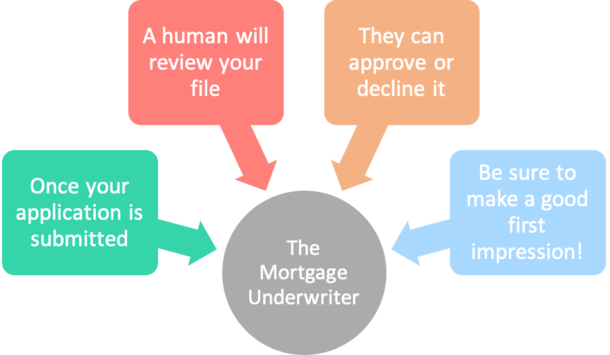Potential buyers stay home during latest rate surge
unitedbrokersinc_m7cmpd2024-04-24T11:17:50+00:00After two weeks of increases, loan application volumes retreated as rates surged to a five-month high, the Mortgage Bankers Association reported. The MBA's seasonally adjusted Market Composite Index, a weekly measure of application activity based on surveys of the trade group's members, declined 2.7% for the period ending April 19, with both purchases and refinances coming in lower. The fall largely reversed the 3.3% jump from seven days earlier, On a year-over-year basis, though, the index dropped 9.3%. The latest downturn came during the same week mortgage rates accelerated to its highest mark since November, leaving borrowers on the sidelines as a result, according to Joel Kan, MBA vice president and deputy chief economist. The average contract rate for the 30-year conforming mortgage with balances below $766,550 in most markets, clocked in at 7.24%, an 11 basis point increase from 7.13% in the prior survey. Points used to help buy down the rate averaged 0.66 compared to 0.65 seven days earlier for 80% loan-to-value ratio applications. The conforming rate increased for the third week in a row among MBA lenders, helping dissuade potential homeowners. "Purchase applications declined, as home buyers delayed their purchase decisions due to strained affordability and low supply," Kan said in a press release. The rising rates contributed to a seasonally adjusted 1% downward slide in the Purchase Index. Compared to the same survey period 12 months earlier, volumes were down 14.7%. Activity decreased last week even as the number of available listings shows ongoing gradual growth, but diminished affordability has squeezed out many in the purchase market, while lenders still struggle to attract customers. Many current trends creating challenged affordability are unlikely to recede in the near term, researchers across the housing market are now suggesting. With economic data from jobs to inflation all pointing to a healthy economy, financial markets rapidly repriced their interest rate expectations, according to Fannie Mae's April economic outlook. "While we still expect economic growth and inflation to moderate going forward — and, thus, for mortgage rates to drift downward — interest rates existing in a 'higher for longer' state seems to be an increasingly real possibility in the eyes of market participants, as well as some home buyers and sellers," said Hamilton Fout, Fannie Mae vice president, economic and strategic research, in a press release. "While we've recently seen evidence that some potential home sellers are becoming more acclimated to the higher mortgage rate environment and putting their homes on the market, the recent move upward in rates is yet another headwind to the recovery of home sales, and it intensifies long standing affordability challenges for consumers," Fout added.Falling in tandem with purchases last week, the MBA's Refinance Index also slowed by 5.6%, with most homeowners still hanging on to rates below current levels. In spite of the latest rise in interest rates, though, refinance volume managed to squeeze out a 3.3% gain from depressed lending activity of a year ago. The refinance share relative to total volume also fell week over week to 30.8% from 32.1%. Adjustable-rate mortgage applications saw an upturn, though, with the ARM Index up 2.1% thanks to conventional lending activity. "The ARM share of applications increased to 7.6%, consistent with the upward trend in rates, as buyers look to reduce their potential monthly payments," Kan said. The share of ARMs grew for the second week in a row after nabbing 7.3% of volume in the previous survey. The seasonally adjusted Government Index saw a greater pullback of 3.8% when compared to overall activity, even as federally backed purchases saw a slight uptick. The share of government-sponsored applications contracted as well, with Department of Veterans Affairs-guaranteed activity falling to 11.7% from 12.4% week over week. The drop was partially offset by the expansion of Federal Housing Administration-backed mortgages, which made up 12.8% compared to 12.3% in the prior survey. The portion of loans coming from U.S. Department of Agriculture programs equaled 0.4%, unchanged from the previous week. Alongside, the conforming average, interest rates finished higher across the board, with 30-year jumbo and FHA-sponsored mortgages both above 7%.The average contract rate of the 30-year jumbo increased to 7.45% from 7.4% one week prior. Points rose to 0.56 from 0.46 among 80% LTV-ratio loans. The 30-year FHA-backed home loan came in at an average rate of 7.01% compared to 6.9% seven days earlier. Borrowers typically used 0.94 worth of points, down from 0.99.Borrowers in 15-year contract mortgages saw an average rate of 6.75%, which represented an 11 basis point increase from 6.64% in the previous survey period. Points remained the same at 0.64 week over week. As with fixed averages, the 5/1 adjustable-rate mortgage increased to a mean of 6.64%, rising from 6.52%. Points used to buy down the rate, which starts on a fixed 60-month term, surged 27 basis points to 0.87 from 0.6.

